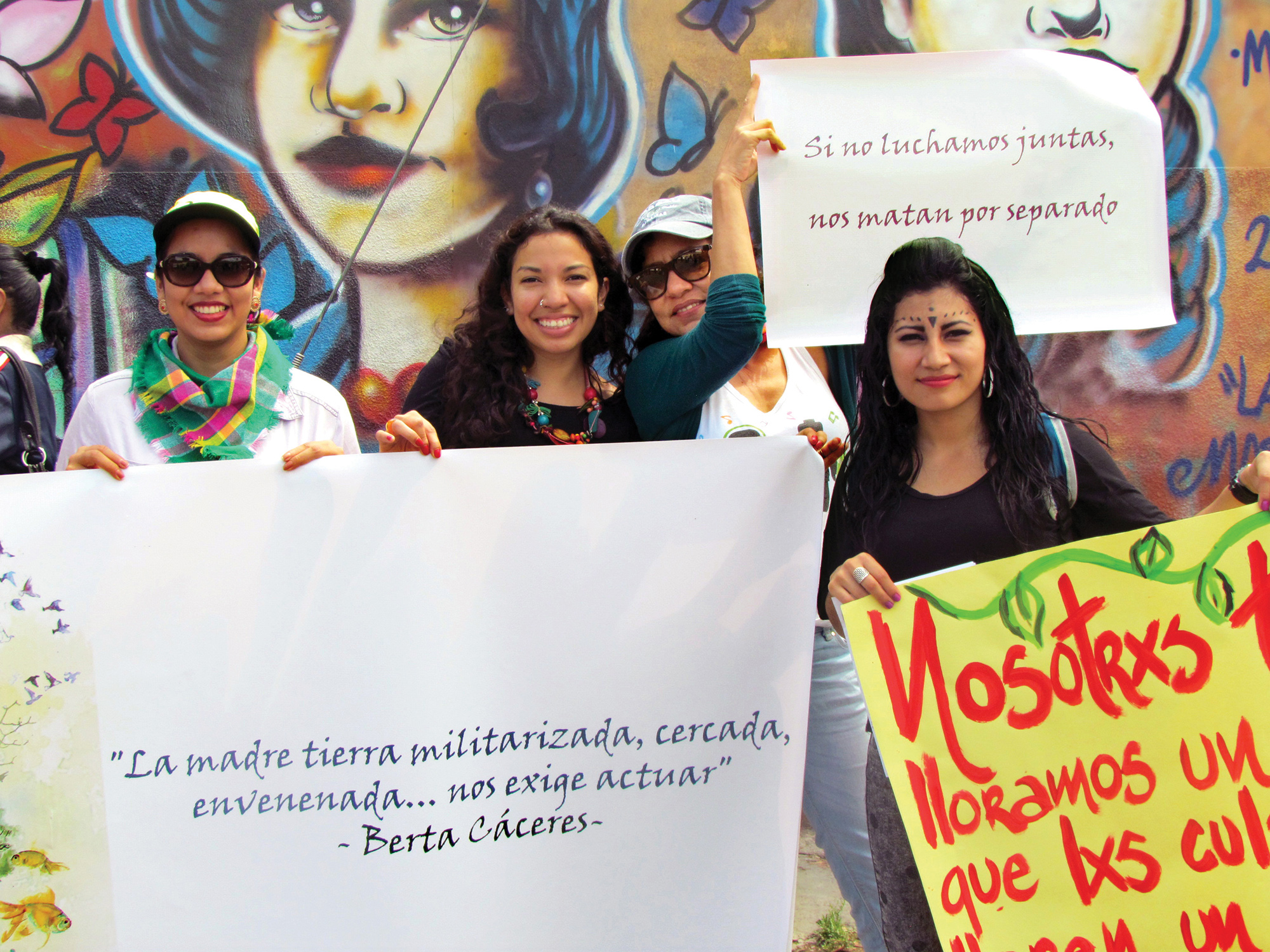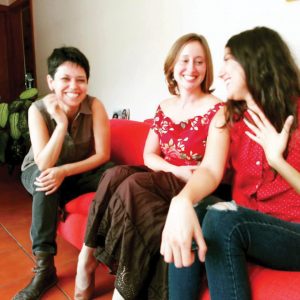When once isn’t enough
Story

A six-month volunteer placement with a women’s advocacy organization in Honduras turned into a two-year stay for Cuso International volunteer and communications expert Kristjanna Grimmelt. As she became increasingly involved in her work with the Centro de Derechos de Mujeres, she decided Tegucigalpa was where she needed to be.
“I realized that some efforts, especially in the area of human rights, take time to achieve,” said Kristjanna. “Extending my placement was important to me. It allowed me to see important projects through and build stronger relationships.”
The Albertan worked with local gender analyst Neesa Medina to prepare strategic plans, fundraising proposals and communications campaigns on labour rights, sexual and reproductive health and the elimination of violence against women.
One of the longest-standing feminist organizations in Honduras, the women’s rights centre has spent more than 25 years advocating for women and led the creation of the country’s first domestic violence law in 1997.
More than two decades later, the organization continues to demand changes.

Cuso International volunteers Claudia Molina ’17 and Kristjanna Grimmelt ’17 with local volunteer and student Nahomi Fernandez.
According to the centre’s research, a woman is murdered every 16 hours in Honduras. In 2015, approximately 2,200 women and girls reported being sexually assaulted. The following year, 775 girls between the ages of 10 and 14 gave birth after being sexually assaulted—the majority by family members.
These victims rarely see justice.
A 2015 report by the Inter-American Commission on Human Rights cites an impunity rate of 95 per cent for crimes against women. And despite high rates of sexual violence, abortion in any circumstance remains a crime.
The morning after pill, a non-abortive contraceptive endorsed by the World Health Organization, is also banned.
To advocate for change, Kristjanna helped establish the centre’s Somos Muchas (We Are Many) collective. With a roster of diverse activists—religious leaders, feminists and human rights groups—the collective is calling for the decriminalization of abortion under exceptional circumstances such as sexual assault or risk to the mother’s health.
“As Honduras is a very religious country, this is an extremely sensitive topic,” said Kristjanna. “The collective approached it with facts. For example, young girls are at five-times the risk of dying during childbirth.”
The collective’s activism generated a national debate covered by media outlets throughout the country. Support from prominent experts, including the president of the national association for gynecologists and obstetricians, came pouring in. Their advocacy efforts weren’t enough to see abortion decriminalized before Kristjanna returned home, but it remains a top priority for the organization.
Executive director of the women’s rights centre, Gilda Rivera, wants to see more young women take up activism and continue to enjoy their lives as they do it. She said that happiness, like so many of the issues she fights for, is a right. Kristjanna agrees.
“Seeing the situation faced by women in a country with a very different context than Canada makes me realize what we have,” she said. “And this is still a struggle for women around the world.”